Mornese (Italy). On 12 May 2022, the eve of the Solemnity of Mother Mazzarello, as part of the celebrations for the 150th Anniversary of the Foundation of the Institute of the Daughters of Mary Help of Christians, proposed by the Community of Mornese, the Superior General of the FMA Institute, Sr. Chiara Cazzuola spoke on the theme: “A dream come true”.
Mother Chiara identifies the reasons for the expansion and fruitfulness of the FMA Institute over time: in the holiness of Mother Mazzarello and the first communities; in the missionary passion that urges Mornese to be outgoing; in a clear educational project.
The conclusion of the intervention is presented:
Looking at the world and realistic adherence to history to find answers to new questions
Don Bosco and Mother Mazzarello lived in times of great cultural, social, economic, political, ecclesial changes. Their approach to changing reality is that “we must know and adapt to the times”. It is a method permeated with realism, concreteness, the ability to adapt to reality that is transformed starting from a precise and constant reference: the explicit or implicit demand for the formation of young people. Those who educate must have the ability to read the needs, questions, hopes that emerge from people’s lives and from the needs of the environment, of history.
Mary Domenica, as an expert farmer, she took care of her land with joy, dedication, concern. According to her agricultural experience, she knew that the earth must be placed in the right conditions to germinate and bear fruit. So, when she had to take care of the girls, she stayed true to this principle. In each person there is a great potential for humanity, there are wonderful resources of life waiting for someone to recognize them, awaken them. It is necessary to put them in the best conditions for them to develop; it is necessary to create the right climate for the desired results to be obtained.
Even among the Daughters of the Immaculate there were those who only wanted to continue to dedicate themselves to the sick or to parish catechesis. Mary Domenica, on the other hand, lets herself be challenged by the need of the girls to be educated.
She realized that Mornese was in an area with a persistent lack of education, especially for women. Illiteracy was very high and for this reason, she wanted to harmonize culture and religious formation to promote women in their fundamental resources at a time when awareness of the social function of women was slowly emerging.
The educational methodology of Mary Mazzarello is placed on the side of courageous and promotional commitment. It is not limited to a welfare response, but an educational one. Whoever educates starts with immediate needs, but points in the direction of values, that is, of the realities that favor the inner growth of people. It offers women culture, religious formation, striving for holiness, the commitment to be free at a profound level, responsible for oneself and for others starting from one’s family and social environment. She, daughter of a poor countryside without schools, conceives and carries out a wide-ranging mission. Mornese and Nizza are the emblem of an integral educational project that still today opens up new perspectives of life and hope to the young people of the five continents.
The temptation, already denounced by Benedict XVI in 2008, to think that education is impossible, today could also creep into our environments. Truly the worst service done to education is to think that educating is impossible. Mary Mazzarello teaches us to predict the future by investing in preventive education. Prevention means placing oneself in the line of everyday life, but sowing seeds of life, love, honesty, joy, purity, freedom in those who are growing up and are in the decisive ages of infancy, childhood, adolescence.
From this gaze on reality and on young people, the charism has continued to flourish over time, adapting itself to the various questions and requests of history and in history, without ever betraying the strength of its origins but always orienting choices towards the good of youth.
In the XXIV General Chapter, as FMA, we reaffirmed that the educational perspective of the Preventive System is the force that can involve young people in a common project of interaction between experiences and skills. In this context, cultural formation in the Christian anthropological vision becomes a commitment to accompanying young people by supporting them in the search for the meaning of life, in building a future of peace, fraternity, social friendship, responsibility for the common home.
We are convinced that assuming the Global Educational Pact from the perspective of integral ecology is today a possibility for a new humanism. It is a question of networking, in a broad educational alliance, to develop universal solidarity.
Let us therefore revive the commitment to take care of and accompany the new generations and renew the passion for a more open and inclusive education to form people capable of facing life in all its complexity. We will be life-generating educating communities if we continue to seek educational convergence and the strength to be together for young people and above all, with young people.
The centrality given by GC XXIV to the prophecy of presence relaunches us, in fidelity to the Salesian charism, in the commitment to BE THERE in contemporaneity, personally and as a community, alongside young people to get to know them, love them, understand them, and guide them towards valid life choices.
“As members of the educating community we are all invited to assume the vocational culture, which can allow each young person to discover and live their own life project. For this reason, it is indispensable to build educational environments where Salesian spirituality is lived daily and the sacramental life, listening to the Word, prayer, discernment, personal and community accompaniment, the joy of sharing and planning together are valued” (Acts GC XXIV, n.12).
This responsibility, shared as an educating community, is truly an expression of fidelity to the prophetic dynamism of the charism, is translated into a vocational culture and is what can make our communities truly generative in the Church and in the various contexts where God calls us.



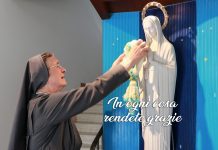
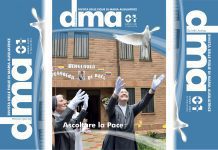
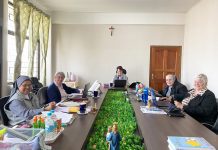




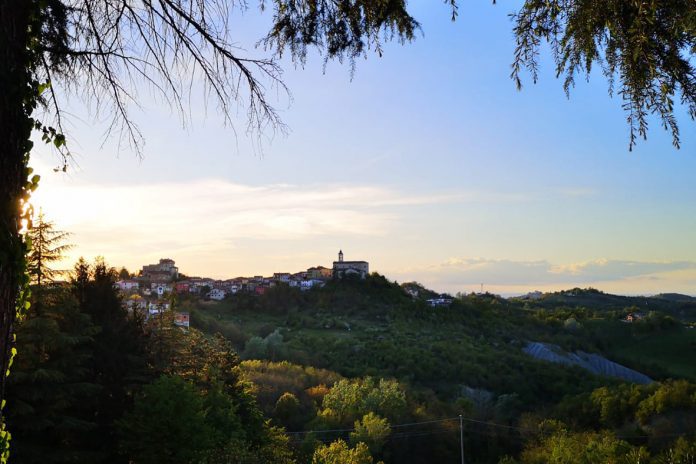
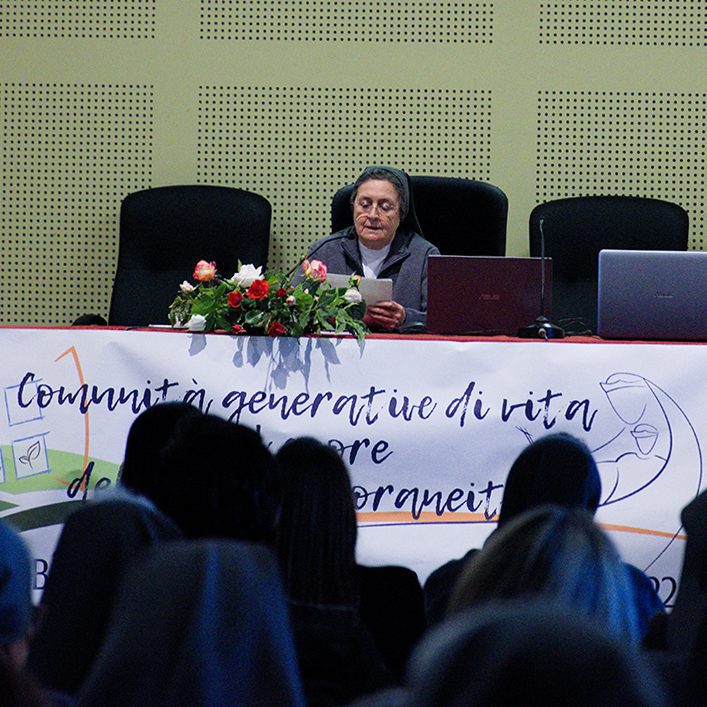










Grazie di questo ampio e forte respiro nel sogno e nell’ oggi. Grazie di cuore che si apre sempre più per accogliere quanto Tu, Madre, vai seminando e richiamando e profetizzando con entusiasmo e sagace saggezza e intelligenza. Ti volgiamo bene.